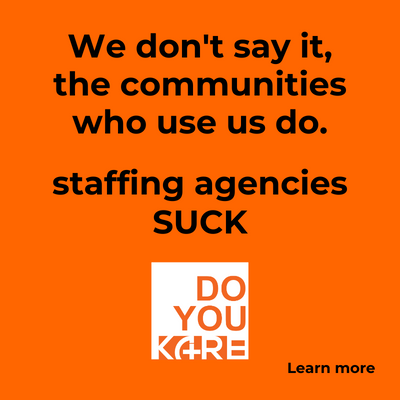This is a story I absolutely had to write about!
By Steve Moran
While at the LeadingAge Peak Conference in Washington, D.C., a couple of weeks ago, Paul Winkler, the President and CEO of Presbyterian SeniorCare, made some very brief comments during a panel discussion about a 725-thousand-dollar grant that allows them to go into high schools and middle schools to inform mostly non-college-bound students about the benefits of working in senior living.
This was a story I had to write about!
Today if you talk to most people who work in senior living, they just sort of fell into it. A family member was working in a community. They needed a job and found one in senior living. A friend told them about an open position. It has been more or less random, luck of the draw and, essentially, never strategic. Paul and his team began to dream about what it might look like if they could take a strategic approach to attracting high school and junior high school students to the field.
A cool idea but it required resources.
Finding Money
One of the big benefits that not-for-profit senior living organizations have is that they can solicit donations for individuals, businesses, and foundations. The big challenge is that while there is a great deal of interest in donating money to kids, environmental causes, and animals, most organizations are pretty ambivalent about contributing funds to anything having to do with older people.
One foundation, the “Richard King Mellon Foundation”, expressed an interest in funding a workforce project that would help expand career opportunities in senior living for junior high and high school students. The folks at Presbyterian SeniorCare dreamed big and put together a substantial 3-year proposal to make this happen. And, they were awarded the grant.
How It Will Work
Here are the key pieces:
-
The first year will be the start-up year followed by two-years of implementation.
-
The foundational idea is to engage, equip, and, ultimately, employ these students.
-
The junior high program, serving two schools will be a summer program that students can attend at little as a half-day a week or as much as full days every day. It will include exposure to various departments in the senior living organization such as food service, maintenance, life enrichment, skilled nursing, assisted living, and dementia care.
They hope to serve around 50 students at each site.
-
The high school program will be much more intensive. The grant funds a full-time coordinator for each of two schools, one in an inner city and the other rural.
-
There will be a strong focus on learning what it is like to work with seniors and to explore the benefits of working in the industry.
-
There will be a strong mentor component for both groups of students.
-
Students will initially shadow team members but will be offered the opportunity to work 10-20 hours per week and be paid.
-
While many of these students will eventually seek non-management positions, a significant element of the grant is that students can grow their career to whatever level they want to achieve: from server to chef, caregiver to LPN or RN, receptionist to executive director. Presbyterian SeniorCare is committed to providing whatever assistance is needed to reach their goals.
I continue to believe that at just about any level, senior living should be the industry and career of choice. It provides the opportunity to make the world a better place, to grow one’s career and to achieve dreams. This program could be the basis of a national model for making that happen.
My plan is to check in after the first year to find out how things are going and what lessons they have learned.
A big thanks to Paul Winkler, Tanya Ulrich, SeniorCare’s Vice-President of Human Resources, and Lisa Fischetti, Senior Director of Communications, for sharing this story.
You can see the student-facing brochures for both programs here:








